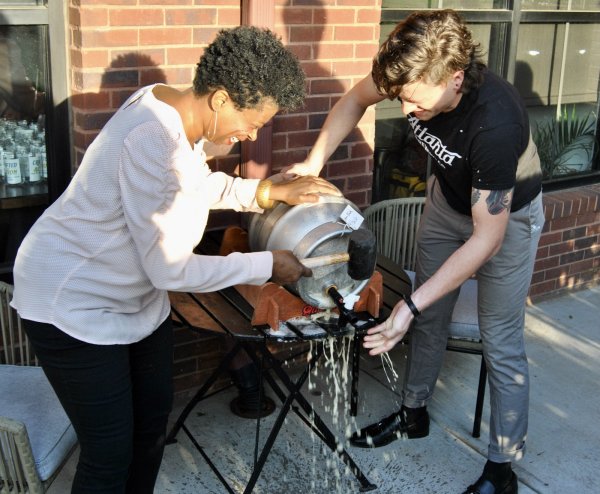By Kerri Allen
When people speak with industry veterans across Georgia’s craft beer scene, one name that may bubble to the top is someone many know by experience, reputation and passion: Lucy Teusink, the co-founder of Frameshift Fermentation, a nomadic brewery founded in 2020. Though her official title of "co-founder" seems simple, her resume reads more like a guided tour through the beating heart of Georgia’s evolving beer culture.
"Currently, my only official title is co-founder of the nomadic brewery Frameshift Fermentation,” Lucy explains. “Readers might know me more recently from my work with taprooms and craft beer brands across North Georgia and the metro area, or through our invitational craft beer bonanza at My Parents’ Basement Pub in Avondale Estates.”
But how does someone become a “mover and shaker” in one of the country’s most creative craft beer scenes? For Lucy, the answer starts not in a brewery but in a coffee shop.
Coffee to Craft: A Journey Through Beer, Community & Change
“My path to craft beer was paved in craft coffee,” she says, reflecting on her upbringing in a house where sensory exploration was a shared language. “I grew up with a coffee geek dad and learned to nerd out about sensory experience and extraction techniques at a young age.”
It wasn’t until 2013 - the year Lucy turned 21 - that she began stepping into the beer world firsthand. “Close friends I met through working in coffee took me under their wing in the craft beer scene,” she recalls. “That year, I finally got to partake in a beer at Decatur's Brick Store Pub instead of simply attending meetups and admiring the pub's impressive inventory and presentation.”
While working as a cake decorator and barista at Whole Foods, Lucy found herself wandering the beer aisles after shifts, mixing six-packs to try a variety of beer brands. Her curiosity didn’t go unnoticed. “The Specialty Team Leader — shoutout to Leon, love you bro — was the beer buyer who noticed my studying," she recalls. "Eventually, Leon let me curate the public tastings based on my knowledge of the Georgia craft beer scene.” And just like that, Lucy's love for craft beer found its foundation at the intersection of community and creativity.
From Volunteer to Visionary
Ask Lucy to summarize her beer career in one paragraph, and you’ll likely get a warm laugh from her as she declares, “Oh goodness, I can’t do that in one paragraph!”
She began in 2015 as a pouring volunteer at Gate City Brewing in Roswell, eventually becoming the General Manager of one of the fastest-growing taprooms in Georgia by 2017. From there, her journey meandered through some of the state’s most respected breweries and beer institutions - Wild Heaven in Avondale Estates, the revered Brick Store Pub and production stints at Scofflaw and Orpheus breweries.
Lucy has worn nearly every brewery hat imaginable: Packaging Manager, Assistant Beer Manager, Cellar Technician, Sales Representative, General Manager and more. Whether she was helping break wholesaler depletion records or guiding Variant Brewing’s front-of-house culture, her hands were always elbow-deep in the work. “I like to think the best ingredient in a great beer is great people,” she says.
A Career of Standout Moments
Among Lucy's many milestones, one that stands out most is her recent election to the Board of Directors for the Georgia Craft Brewers Guild. “I was super surprised and honored,” she recalls. “Cherry Street Brewing's Nick Tanner nominated me, and the members must have resonated with my experiences, because I became the youngest board member in the guild's 14-year history - without ever having owned a production facility.” Though Lucy had to resign the position after leaving her role at Crooked Culture Brewing, she remains active in the guild community. “I always took representing my colleagues very seriously and won’t forget their trust in me.”
Other highlights of Lucy's career include collaborating with some of Georgia’s best breweries and launching Frameshift Fermentation’s wild ale projects across Georgia. “If you’ve never been to a Frameshift release event, hit up our social media to make sure you don’t miss out,” Lucy says.
New Chapters and Old Roots
Currently embracing what she calls “Free Agency,” Lucy constantly finds new ways to blend her passion for coffee and beer. This includes planning multiple Frameshift collaborations and working behind the scenes to establish a new organization focused on strengthening Georgia’s beer culture. “What excites me most about leaning into free agency and getting back into the coffee world is that my extracurricular beer work will have more time to shine,” she says. Frameshift Fermentation has two collaborations on the horizon, three more brew days to schedule, and a special barrel-aged wild ale release coming soon at Twain's Brewpub in Decatur, Georgia.
The Hardest Hops
Despite her career highs, Lucy’s no stranger to beer industry obstacles. “One huge challenge has been advocating for myself and others in rooms where we are not respected,” she admits. “Patrons tend to put a brand’s owner on a pedestal without noting whether their consumer dollars are going to someone who cultivates a happy staff.” Lucy believes firmly that brewery culture begins at the top, with leadership and accountability. “There’s currently an alarming theme of brewery owners who never thought to learn leadership or management skills, and money can’t buy this. It takes work and practice.”
Shifting the Industry’s Future
As an advocate for underrepresented voices in craft beer, Lucy sees progress and hope on the horizon, especially regarding women and breweries owned by BIPOC (Black, Indigenous, People of Color) individuals. “According to the President of the National Black Brewers Association, BIPOC breweries make up the steepest growth sector in our industry,” Lucy says, referencing this year’s Crafted For Action brewing conference in Atlanta. “I was heartened and not at all surprised by this data.”
For Lucy, true inclusion starts with representation at every level. She adds, “No business can understand its complex market without representation of more than one type of person in the boardroom.” Through her work with Frameshift and a new organization still in development, she aims to contribute to creating a safer and more inclusive industry. “For the health and longevity of Georgia’s craft industry, the tide must shift,” she declares.
Though Lucy currently finds herself between formal roles in the beer industry for the first time in a decade, she remains a guiding light in the Georgia scene - still collaborating, still advocating and still brewing the future one pour at a time.










 Zac started brewing after he married Cari in 2009. Cari reflects, “He was instantly hooked. I would assist on brew days, and when Zac eventually told me that he was put on earth to brew beer, I knew he had to follow his dream, and I wanted to help cultivate this. In 2014, we realized our vision in the form of a 14,000-square-foot craft beer facility in Hammond.
Zac started brewing after he married Cari in 2009. Cari reflects, “He was instantly hooked. I would assist on brew days, and when Zac eventually told me that he was put on earth to brew beer, I knew he had to follow his dream, and I wanted to help cultivate this. In 2014, we realized our vision in the form of a 14,000-square-foot craft beer facility in Hammond. Cari's welcoming demeanor, positive attitude, and love of the industry seem apparent to patrons visiting the Gnarly Barley taproom, but obstacles exist in an ever-moving industry. Cari notes that the biggest challenge she has faced is the feeling of constantly having to “one-up” herself in the continuously changing landscape of craft beer. Hard work pays off, and Cari observes, “My greatest reward is the genuine gratitude that we receive from our customers. It’s amazing when you create something people truly care about and love.”
Cari's welcoming demeanor, positive attitude, and love of the industry seem apparent to patrons visiting the Gnarly Barley taproom, but obstacles exist in an ever-moving industry. Cari notes that the biggest challenge she has faced is the feeling of constantly having to “one-up” herself in the continuously changing landscape of craft beer. Hard work pays off, and Cari observes, “My greatest reward is the genuine gratitude that we receive from our customers. It’s amazing when you create something people truly care about and love.” Gnarly Barley offers a wide array of delicious beers. Cari comments, "My original Gnarly Barley obsession began with Korova Milk Porter because of its rich roasty notes of chocolate and coffee. While this beer still holds a special place for me, my taste buds soon gravitated toward hoppier brews. Jucifer, our juicy/hazy IPA, is now one of my favorites.” She waxes poetic, “Its vibrant blend of hoppy citrus and tropical flavors make it irresistible.”
Gnarly Barley offers a wide array of delicious beers. Cari comments, "My original Gnarly Barley obsession began with Korova Milk Porter because of its rich roasty notes of chocolate and coffee. While this beer still holds a special place for me, my taste buds soon gravitated toward hoppier brews. Jucifer, our juicy/hazy IPA, is now one of my favorites.” She waxes poetic, “Its vibrant blend of hoppy citrus and tropical flavors make it irresistible.” 


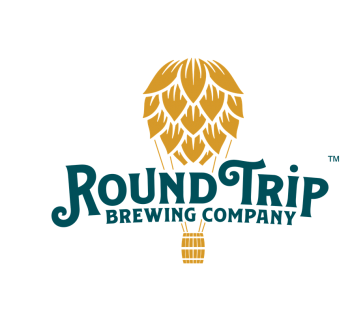 For women in the craft beer industry, whether in sales, brewing, front of house, etc., The Pink Boots Socie
For women in the craft beer industry, whether in sales, brewing, front of house, etc., The Pink Boots Socie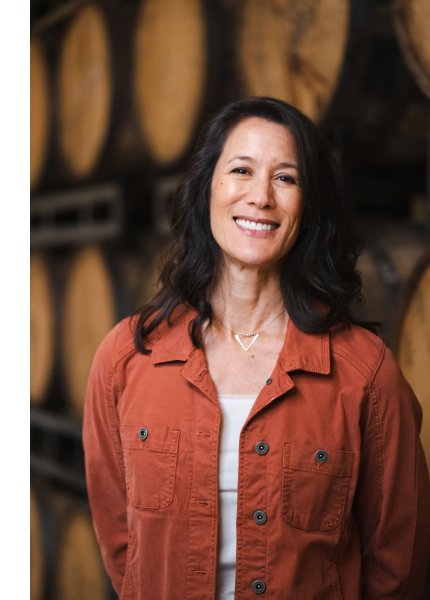
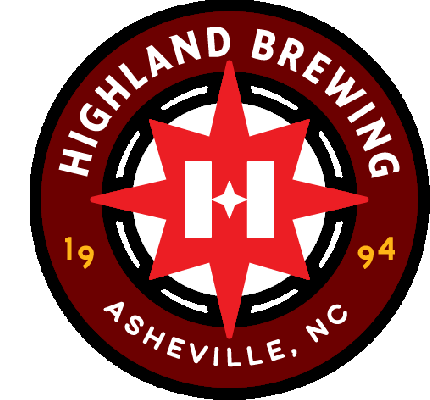 When asked why Asheville is a special place for beer, Leah explains that the town is known for its independent spirit, stunning natural surroundings and vibrant, creative community. The region's abundant resources, including high-quality water for brewing, contribute to Asheville's reputation as a hub for craft beer enthusiasts. “We are surrounded by creators in beverages, music, art, food, clay, paint and much more," Leah declares. "We have incredible water for brewing. Our reservoirs are so close that they are visible from some of our hiking trails.”
When asked why Asheville is a special place for beer, Leah explains that the town is known for its independent spirit, stunning natural surroundings and vibrant, creative community. The region's abundant resources, including high-quality water for brewing, contribute to Asheville's reputation as a hub for craft beer enthusiasts. “We are surrounded by creators in beverages, music, art, food, clay, paint and much more," Leah declares. "We have incredible water for brewing. Our reservoirs are so close that they are visible from some of our hiking trails.”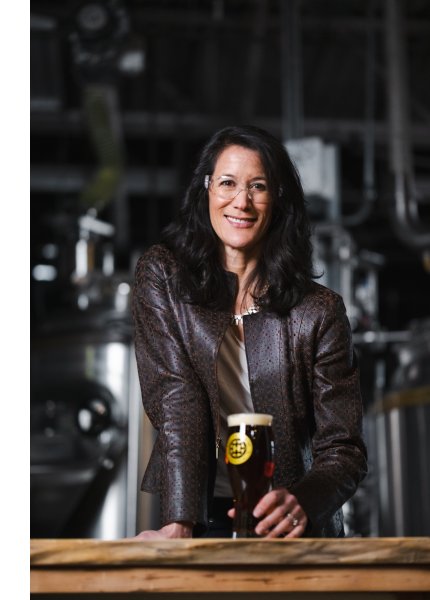 A Head for Business
A Head for Business
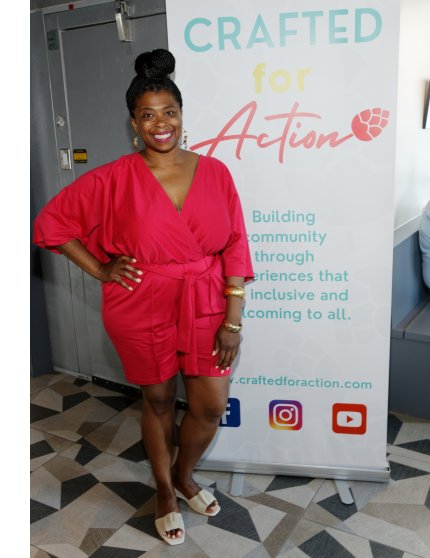 By Kerri Allen
By Kerri Allen